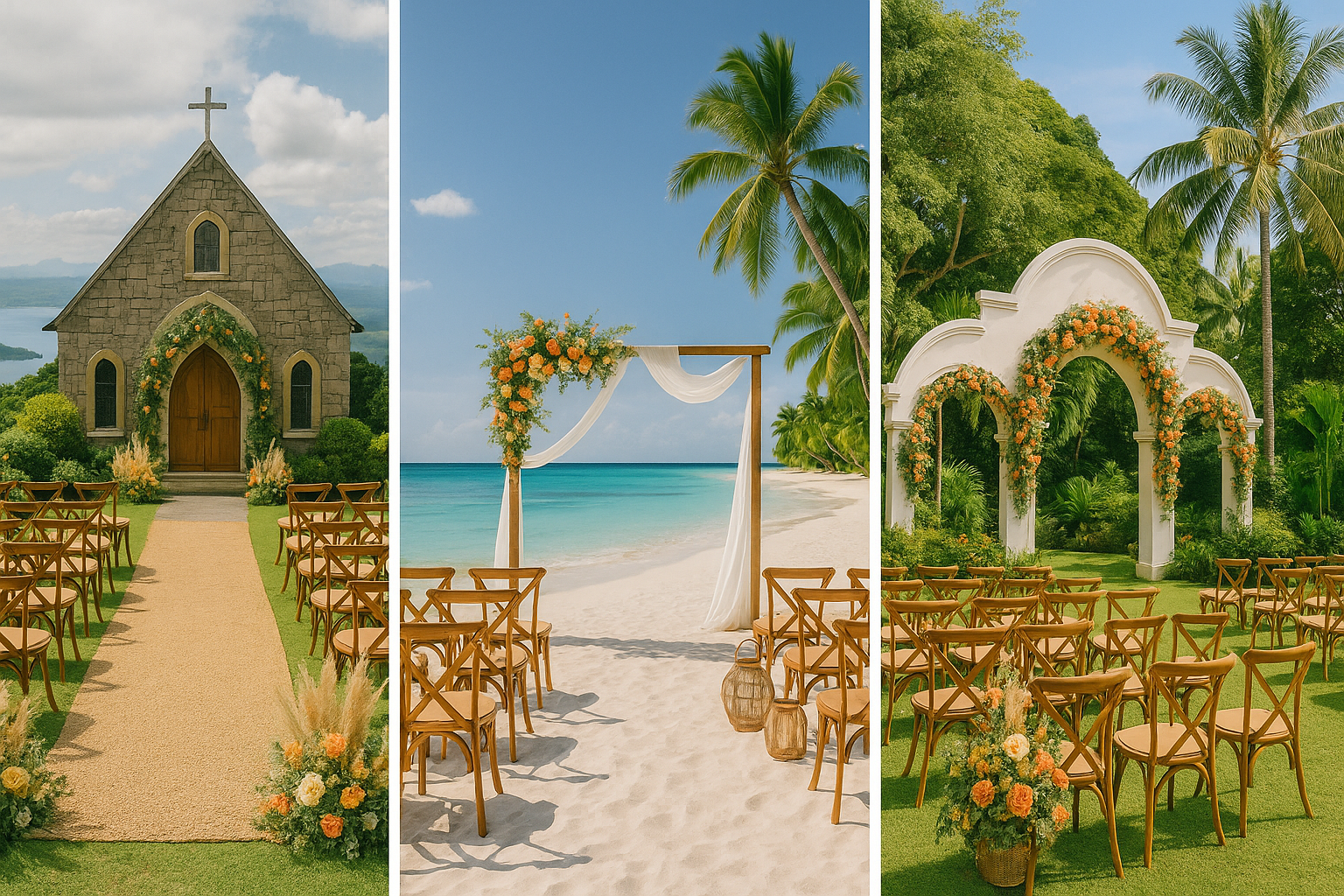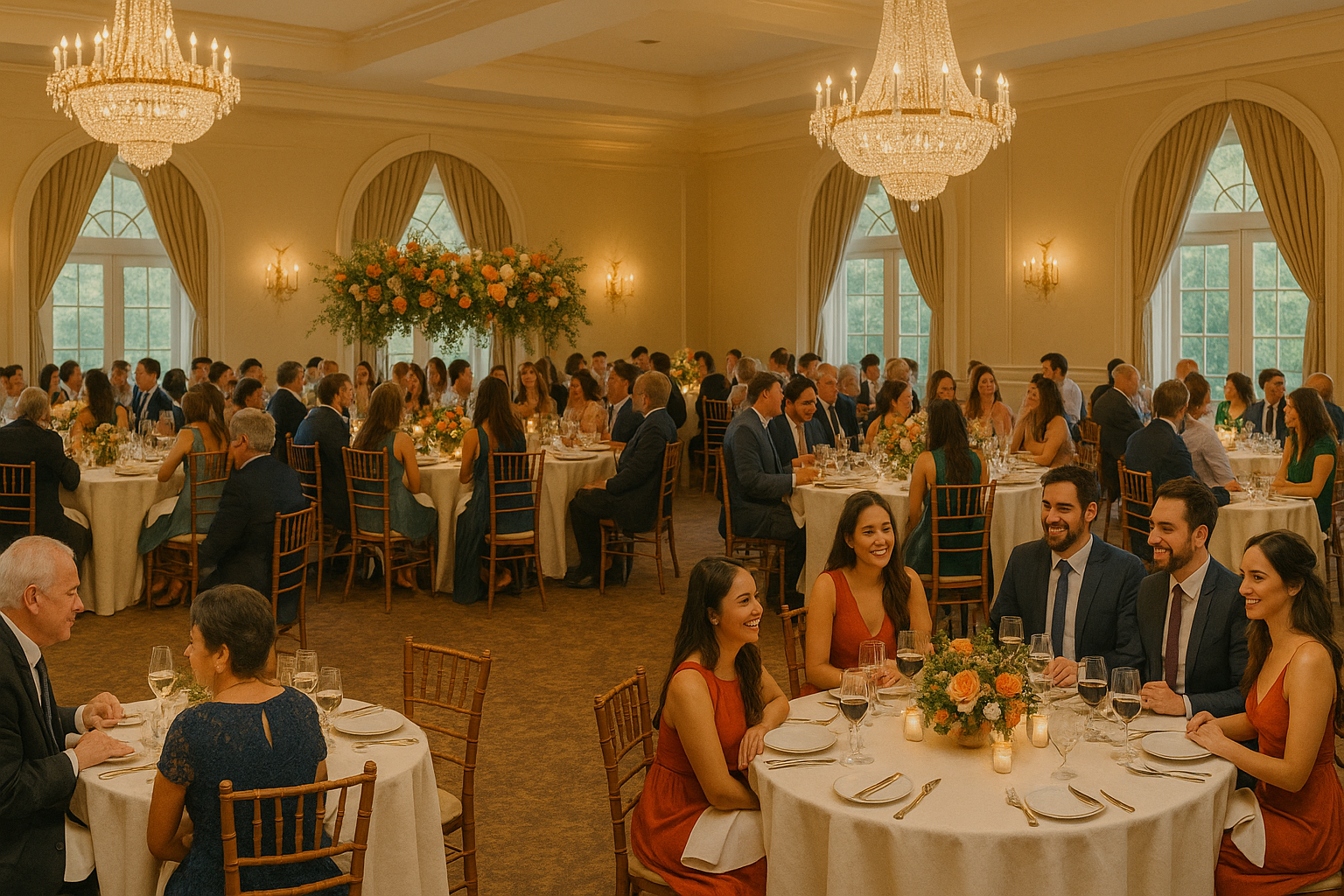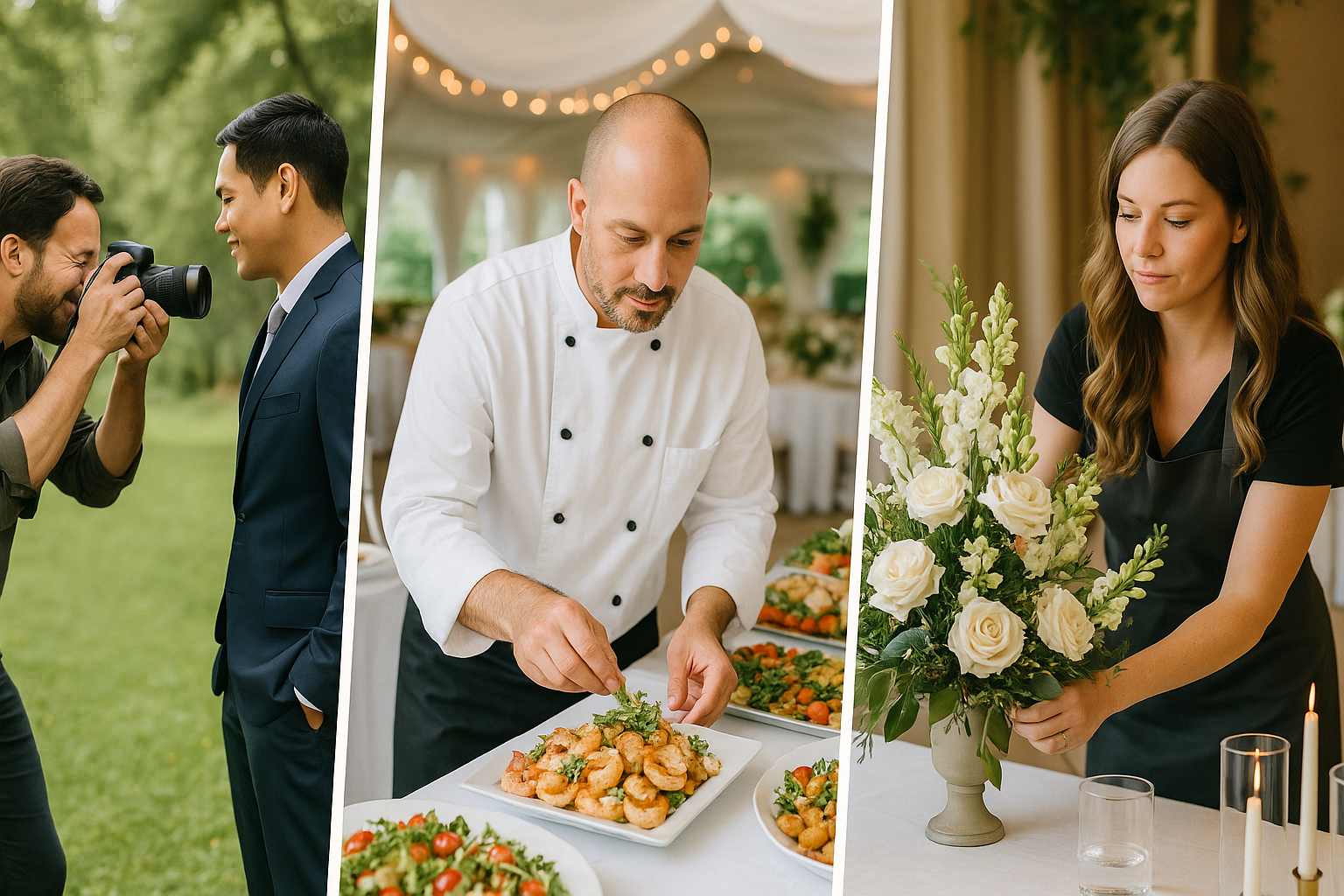
Cost of Wedding in the Philippines: 5 Essential Things You Need to Know

After the excitement of your engagement settles, one of the first and most important questions you'll face is: “How much does it really cost to get married in the Philippines?” It's a crucial question—one that can feel overwhelming given how many variables are involved. The good news is that understanding the main factors that affect wedding expenses will empower you to plan a celebration that matches both your vision and your budget.
Let's break down the five most important things you need to consider—each with practical insights and expert tips to guide your decisions.
1. Type of Wedding
The style and format of your wedding lay the foundation for your entire budget. Start by clarifying your priorities: Do you dream of an intimate gathering with your closest family and friends, or do you envision a grand affair with everyone you know?
Common Wedding Types in the Philippines
- Church Wedding:
A traditional favorite, church weddings typically involve two venues: one for the ceremony and another for the reception. Churches charge a range of fees, often based on location, historical value, and additional requirements like pre-marriage seminars or music. Reception venues come with their own packages and restrictions.
Expert Tip: If you want a church wedding but have a limited budget, look for smaller parish churches and nearby function halls instead of well-known cathedrals and luxury hotels. - Garden Wedding:
Garden weddings are popular for their natural ambiance and the possibility of holding both the ceremony and reception in one beautiful setting. This can simplify logistics and reduce venue costs, but don't forget to factor in the price of tents, outdoor lighting, sound systems, and contingency plans for bad weather.
Expert Tip: Always allocate part of your budget for a backup plan—such as a tent rental—so rain won't disrupt your big day. - Beach Wedding:
Beach weddings are romantic and memorable, but they often require more planning and can incur extra costs, especially if your venue is out of town. Accommodations for you, your families, and VIP guests may be needed. Logistics for transporting decor, food, and suppliers to a remote location can also drive up expenses.
Expert Tip: Consider off-peak dates and weekdays for beach weddings. Resorts and hotels may offer better rates, and travel/accommodation costs may be lower. - Civil Wedding:
The most budget-friendly route, civil weddings require minimal setup, fewer suppliers, and little in the way of decor or elaborate attire. This simplicity keeps costs low while still allowing for a meaningful celebration.
Expert Tip: Even with a civil ceremony, you can make the day special by treating your small guest list to a memorable meal or thoughtful experience after the legal proceedings.

2. Location of Your Wedding
Where you choose to get married plays a critical role in shaping your budget. Urban weddings, destination weddings, and hometown celebrations all come with unique cost considerations.
What to Expect in Different Locations
- Major Cities (e.g., Manila, Cebu, Davao):
Venues in metropolitan areas are generally more expensive due to higher demand and premium services. However, there's a wider variety of options, from luxurious hotels to affordable event spaces. - Popular Destinations (e.g., Tagaytay, Boracay, Palawan):
Highly sought-after spots like Tagaytay can be especially pricey, as they are famous for their scenic views and established reputation. The demand for these venues can drive up both venue and supplier fees. - Provinces and Rural Areas:
Weddings in less urbanized areas, such as Laguna, Bulacan, or Cavite, are often more affordable. However, if your families are based far apart or you're inviting many out-of-town guests, you may incur additional costs for transportation, lodging, and hospitality.
Real-World Examples
Wedding budgets reported by couples can vary widely:
- A 100-guest Tagaytay wedding: ₱650,000
- 150 guests in Quezon City: ₱350,000
- 100 guests in Laguna: ₱200,000
- 150 guests in Bulacan: ₱270,000
- 100 guests in Cavite: ₱120,000
- 300 guests in Bicol: ₱500,000
- 150 guests in Negros: ₱480,000 (with guest accommodations and transport)
Expert Tips:
- If you're set on a destination wedding, keep the guest list small to control costs.
- For hometown weddings, leverage family and local connections for discounts or in-kind help with venues and services.
3. Wedding Date
The timing of your wedding is more influential than most couples realize. Prices can vary drastically depending on the month, day of the week, or even specific dates with cultural or numerical significance.
Price Fluctuations and Peak Seasons
- Annual Price Increases:
Many wedding suppliers update their pricing at least once a year, and some do so bi-annually. Booking well in advance (and locking in current rates) can protect you from these increases. - Peak Wedding Months:
December is considered a “super peak” month—not only are there more weddings, but company parties, family reunions, and other events all compete for venues and suppliers. June is popular for its cultural association with the “June Bride.” - Holidays and Special Dates:
Marrying on a public holiday or a “lucky” date (such as repeating numbers) means increased competition and often, higher prices. Additionally, labor laws require double pay for employees working on holidays, which suppliers pass on to clients.
Expert Tips:
- If your budget is limited, aim for a wedding during the off-peak months or on a weekday.
- Book your preferred suppliers early, especially if you have a specific date in mind.
- Always ask your suppliers if you can lock in rates with an early down payment.

4. Number of Guests
How many people you invite impacts nearly every aspect of your wedding budget. Every guest represents an additional seat, meal, favor, and invitation.
How Guest Count Multiplies Costs
- Catering:
Most caterers charge per head. The more guests, the higher your food and beverage bill. - Invitations:
Printing, assembling, and sending invitations for a large group adds up. - Souvenirs and Favors:
Even a modest token multiplied by a large guest list becomes a significant expense. - Venue Size and Setup:
Larger events may require a bigger venue or additional rentals, such as tables, chairs, and tents.
Expert Tips:
- Draft your ideal guest list, then trim it by asking: “Have I spoken to this person in the last year?” or “Will this person play an ongoing role in our lives?”
- Consider inviting some friends or colleagues to the ceremony only or hosting a more informal post-wedding celebration at a later date.

5. Preferred Suppliers
The suppliers you select for your wedding—planners, photographers, stylists, florists, caterers, entertainers, and more—will largely dictate the overall tone, quality, and cost of your event.
How to Manage Supplier Costs
- Celebrity or Highly Sought-After Suppliers:
Well-known names come with premium pricing. Their reputation, expertise, and reliability can justify the cost if it's within your budget. - Personal Recommendations and Local Talent:
Lesser-known suppliers may offer excellent quality at more reasonable rates, especially in the provinces. - Negotiations and Packages:
Some suppliers provide bundled packages or discounts for off-peak bookings, referrals, or early reservations.
Expert Tips:
- Identify your non-negotiables (e.g., must-have photographer or stylist) and budget for them first.
- For services that matter less to you, be flexible—this is where you can save.
- Always read contracts carefully, and clarify all inclusions before making a deposit.
- Ask for referrals from recently married friends or family for trusted, budget-friendly options.
Final Thoughts
Planning a wedding in the Philippines involves a delicate balance between your dreams and your resources. By understanding the key factors—type of wedding, location, date, number of guests, and choice of suppliers—you can make informed decisions, avoid unexpected expenses, and focus on what truly matters: celebrating your love and starting your married life on the right foot.
Expert Checklist for Staying on Budget
- Create a detailed spreadsheet to track all expenses and payments.
- Prioritize what's most important to you as a couple.
- Leave a buffer of at least 10% in your budget for unexpected costs.
- Be honest with your families about your financial limits and vision.
- Remember, a meaningful celebration doesn't have to be extravagant—a wedding is about love, commitment, and shared joy.
Happy planning, and may your wedding day be everything you dream of and more!


